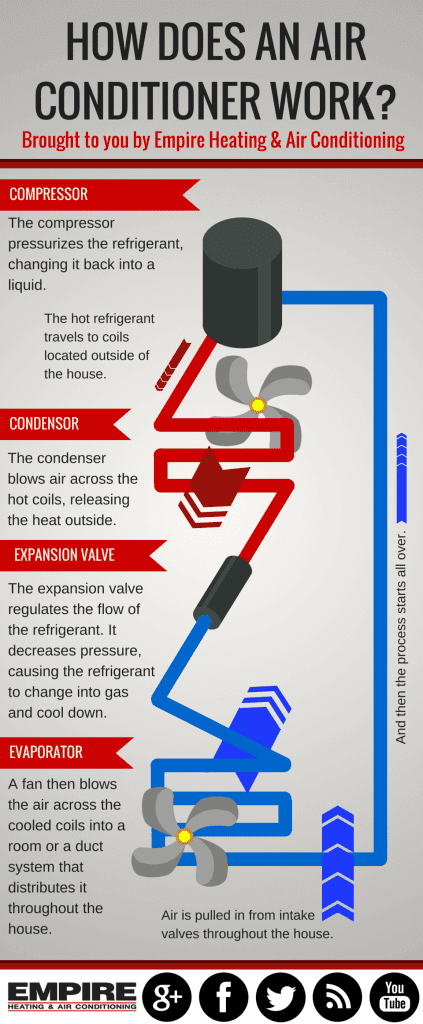Checking Out The Environmental Advantages Of Warm Pumps - A Lasting Heating Service
Checking Out The Environmental Advantages Of Warm Pumps - A Lasting Heating Service
Blog Article
Content By-Keating Burgess
In an age where sustainability and power efficiency are critical, lots of services look for environmentally friendly heating solutions. One such service is the heatpump.
A heat pump draws out the warm in its surroundings and pumps it into your home, leading to among the most reliable eco-friendly central heating systems around. This process also produces absolutely no greenhouse gas emissions, making it a very sustainable technology.
Energy Efficiency
Heat pumps are really power effective and call for little maintenance. They use less electrical power than other heating systems and are by far the most eco-friendly. They work well with rooftop solar and can typically spend for themselves in energy cost savings alone.
They can also provide cooling, which is wonderful for garage workshops, attic room hangouts and benefit areas, and home enhancements without extending the existing ductwork. They can even be made use of for retrofits in existing homes with hydronic (water-based) circulation systems such as reduced temperature level radiators or radiant floors.
Look for models with SEER and HSPF scores that satisfy or exceed Canada's minimum standards, in addition to the standards in your region. Higher ratings imply greater performance, which saves you cash in the long run and decreases your carbon impact. You might also qualify for refunds and motivations! The very best systems are those with a ground heat exchanger for added performance. These devices can soak up thermal power from the ground throughout the winter months and extract it in the summer season.
Lowered Greenhouse Gas Emissions
Heat pumps run on electricity and basically transfer heat from the air, even when it's cold exterior. They are able to draw out the totally free warmth entraped in air fragments and relocate them inside, reducing humidity while doing so.
Compared to gas heating systems, modern-day heatpump use less than one kilowatt of electrical power per kilowatt of home heating power they create. This makes them one of the most energy reliable home heating choice readily available with a COP (Coefficient of Performance) of four or more. By reducing the demand for fossil fuels, heat pumps help reduce greenhouse gas emissions and cut various other major air contaminants.
Building decarbonization is a worldwide necessary, and the cooling and heating field is a key motorist of that process. Whether it's investor making net zero commitments, policy manufacturers setting exhausts limits, or renters requiring greener areas, electric heatpump are being identified as a vital remedy. They are a cost-efficient means to lower carbon discharges by removing the demand for nonrenewable fuel sources in structures.
Flexibility
Heatpump can be made use of in numerous sorts of homes and structures-- with or without ducts. They collaborate with hot-water radiators, air-conditioning and programmable thermostats. They can change heaters or be set up in new homes. They can work on solar panels, geothermal systems and even area home heating resources like wastewater.
They're fantastic at providing more heat per energy unit. For instance, an air-source heatpump generates up to three or more heating systems from each electrical energy unit it consumes.
Getting one of the most from your heat pump will depend on your environment zone and top quality of insulation. Look for webpage with power STAR scores and contrast their SEER or HSPF specs. In warmer environments, concentrate on SEER; in cooler areas, think about a system with a greater HSPF rating. Furthermore, purchase air sealing and insulation to minimize the load on your heatpump. That will certainly enhance energy performance and assist you reach your Internet No objectives quicker.
Biomass Boilers
Biomass central heating boilers make use of wood pellets, chips or logs to develop heat and warm water. They are a good choice for off-grid residential properties or those who want to get off the gas grid.
As Click On this site heating system, biomass can supply adequate energy to keep your home cozy all year round without the regular warmth drop off of other sustainable technologies. They can also be utilized together with photovoltaic panels to maximise savings and benefit from RHI repayments.
A downside of these systems is the upfront expense and regular gas shipments. Commonly, pellets will certainly need to be blown right into a fuel shop making use of a vacuum system or they can be manually fed right into the central heating boiler via a receptacle. Logs are usually self-sourced from neighboring woodland or acquired wholesale. As well as this, they need manual loading and may need cleaning on a regular basis.